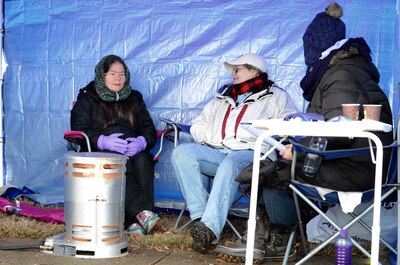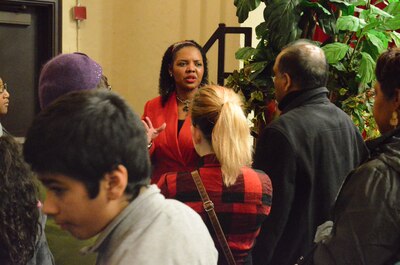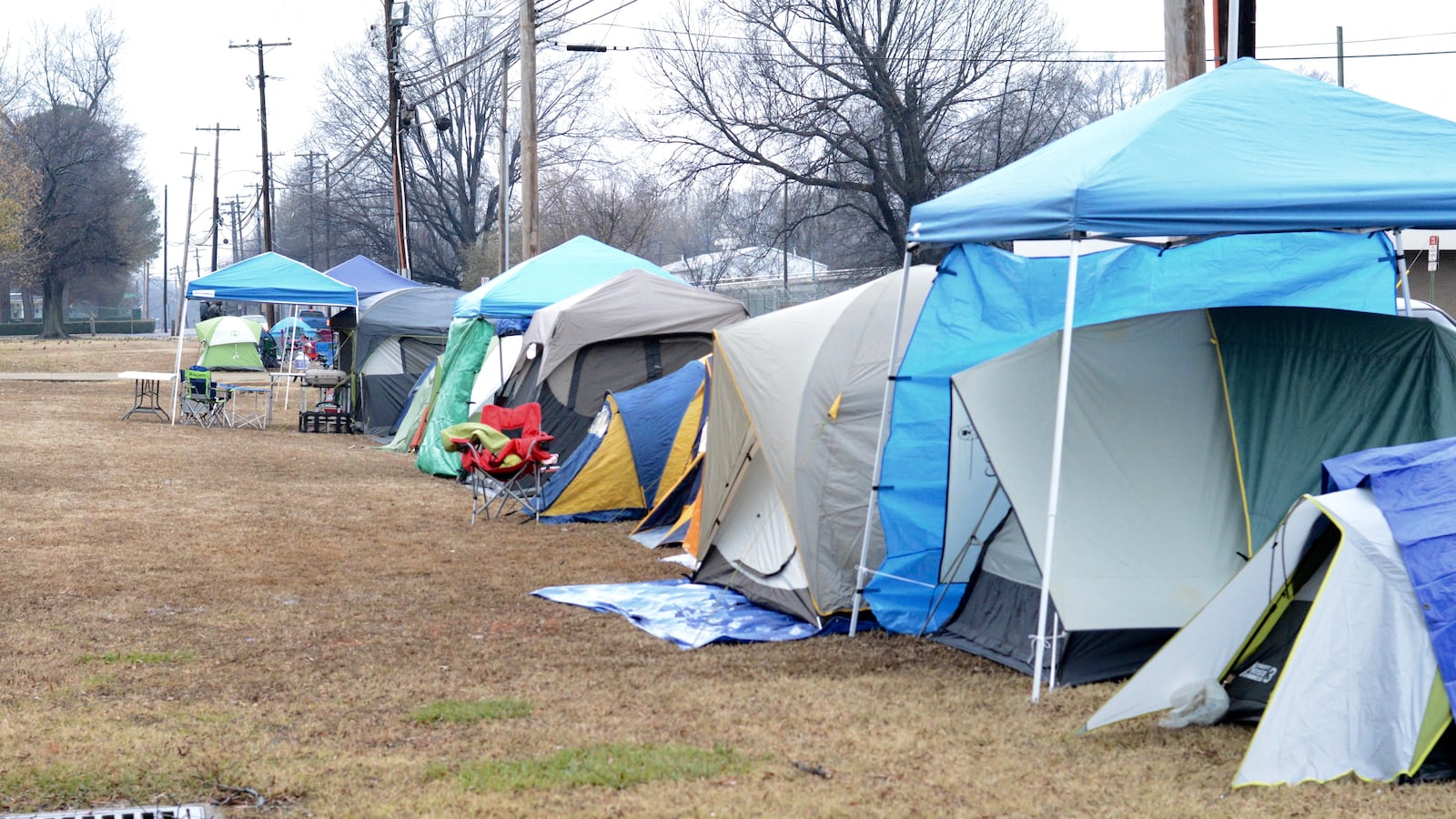Bundled up in coats, hats and gloves and sitting in a circle around a portable heater, parents Ginger Lord, Sandra Yarbrough and Teresa Starling explained what is motivating them to camp outside of Shelby County Schools’ headquarters building for six days amid freezing temperatures, rain, snow and hail.

The first in line on Wednesday to apply for the district’s optional schools next Monday, all three are seeking a spot for their children in the Maxine Smith STEAM Academy, a 2-year-old optional middle school that has become the school of choice for families seeking a high-achievement public education for their kids in Memphis.
“There’s 50 spots for sixth grade at STEAM for students outside of the district,” explains Yarbrough of Cordova, a Memphis bedroom community that lies outside of the school’s zone. “They can’t guarantee me I’ll get a spot. There were over 1,300 parents here last year. So, I’m third in line. You gotta do what you gotta do.”
Shelby County Schools offers 47 optional schools and programs, each with theme-based learning designed to fit children’s needs and interests in a district known primarily for low-performing schools.
Every year for the last decade or so, parents have camped on the central office lawn during the week before optional school applications are distributed in order to secure a spot for their children. The hot schools vary from year to year. Among them have been White Station Middle, Grahamwood Elementary and Snowden Middle — all with academic programs that put kids on the college prep track.
This year, the hot school is Maxine Smith STEAM Academy for grades 6-8, which offers an emphasis on science, technology, engineering, the arts and math. The school has a partnership with Christian Brothers University, a highly regarded Catholic school in midtown Memphis, and each student is issued an electronic tablet as part of the school’s blended learning program. There are rigorous honors courses, and students must have mostly As and Bs and score at or above the 65th percentile on state achievement tests to be eligible to attend.
The district created the school two years ago to increase options for parents seeking high-performing middle schools with a STEM focus.
“Parents have told me that they’re hearing about how great STEAM is at their workplaces, or their church. They’re hearing about STEAM in their communities,” said Linda Sklar, director of optional schools.
She adds that STEAM has a reputation as a small school with exceptional teachers and a strong principal, Lischa Brooks.
It’s enough motivation for parents like Lord, Yarbrough and Starling to endure wet and cold weather and make arrangements for a six-day campout in the middle of Memphis.
As the first parents in line, they have certain responsibilities, including keeping a roll of all parents who are camping out before district officials hand out applications with numbered bar codes beginning at 6:30 a.m. next Monday. About 30 parents were already on the rolls for this year’s “tent city” by Thursday.
Each year, parents complain that there’s got to be a better system. And each year, district administrators assure them that there is. They say camping out isn’t necessary.
“I know at this point, it’s almost a type of tradition,” Superintendent Dorsey Hopson said during a school board meeting on Tuesday. “But the data suggests there’s no need to camp out.”
Last January, Sklar said, “99.9 percent of the 2,717 people that applied on the first day were able to get in a school of their choice, if their child met the requirements.”
She offers that message every year when she talks with parents camping out. “And they tell me, ‘Linda, if you can hand me a letter saying my kid is approved, then I’ll go home.’ And of course, I can’t do that,” she said.

Next school year, Maxine Smith STEAM Academy will have 100 openings for sixth-grade students. Fifty spots are reserved for students who live within 2 miles of the school; the rest for those who live beyond that radius.
Parents say they don’t know what a solution to camping out would look like, but it might be to develop more high-quality schools like STEAM.
“The best way would be for every child to have the same quality of education,” said Elizabeth Manoah, camping out to get her son in STEAM. “For people to have to wait in order for their child to get a quality school, … that’s not right.”

